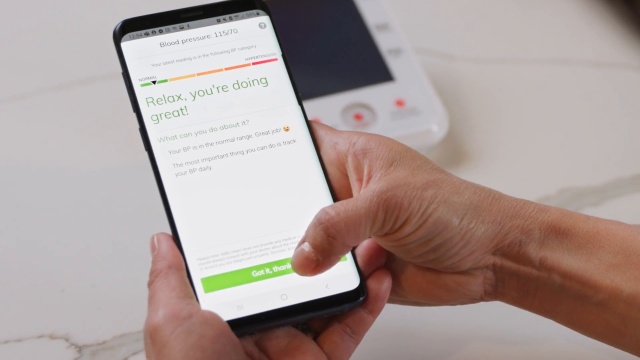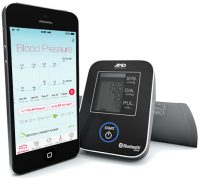Digital health firm Hello Heart raises $70m

Hello Heart has raised $70 million in fourth-round financing to help grow its smartphone-based technology for people seeking to improve their heart health.
[caption id="attachment_90689" align="alignright" width="200"] Hello Heart blood pressure monitor[/caption]
Hello Heart blood pressure monitor[/caption]
Hello Heart's digital platform is based on a blood pressure monitor and smartphone app. It deploys artificial intelligence to help users track their blood pressure, pulse rate, weight and activity levels – as well as any medications taken – and give feedback and advice on how to adopt healthy practices.
It can also provide real-time alerts to their physicians in case of sudden changes that could indicate a cardiac problem.
Hello Heart said that it is seeing a spike in demand from employer customers, who generally provide the app and monitor to their workers for free as a component of healthcare plans.
The new funding was led by private equity firm Stripes and also featured existing investors Maven Ventures, BlueRun Ventures, IVP, and Resolute Ventures. Stripes partner Ron Shah is joining the Hello Heart board following the round.
The financing takes the total raised by the company to $138 million and according to the company will extend the use cases of the AI.
In the pipeline are enhanced lifestyle digital coaching modules, adding whole heart health functionality such as further medication tracking capabilities, as well as cholesterol tracking and advice on managing cholesterol levels.
Hello Heart has generated data to back up the benefits of the digital toolkit, which was published in the journal JAMA Network Open last year.
The cohort study in more than 28,000 US adults using Hello Heart found that a year after enrolment more than 85% of patients with stage 2 (severe) hypertension saw a reduction in systolic blood pressure over three years follow-up.
Those with greater engagement with the app tended to have lower blood pressure over time. Hypertension affects 47% of Americans, and it is estimated that less than a quarter of them have adequate blood pressure control.
"Hypertension and other cardiac diseases are the most pervasive chronic conditions and largest cost drivers in the US healthcare system," commented Shah.
"Our investment extends our longstanding thesis that amazing products can deliver amazing results, even with some of our most intractable and challenging problems," he added.












